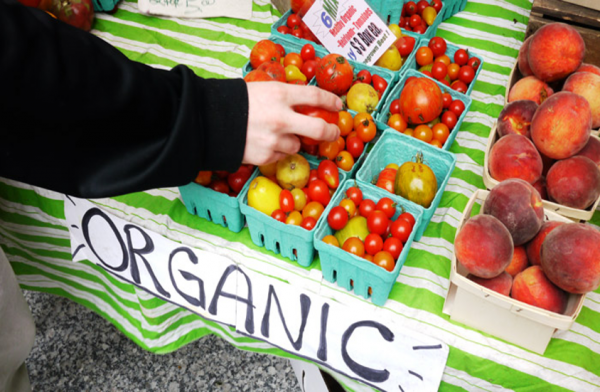“Take cancer prevention into your own hands, starting today. The rewards will last a lifetime”.
Diet :
A balanced diet may not guarantee a cancer-free life, but it reduces the possibility of developing cancer. Your diet should be composed of plenty of fruits and vegetables, fiber-rich foods like wholegrain bread, milk and dairy foods, and non-dairy sources of protein. Limit the intake of red and processed meat to lower bowel cancer risk, and eat fewer high fat products. Although making healthy selections at the grocery store and at mealtime can’t guarantee cancer prevention, it might help reduce your risk.
Consider these guidelines: Eat plenty of fruits and vegetables. Base your diet on fruits, vegetables and other foods from plant sources — such as whole grains and beans. Limit fat. Eat lighter and leaner by choosing fewer high-fat foods, particularly those from animal sources. High-fat diets tend to be higher in calories and might increase the risk of overweight or obesity — which can, in turn, increase cancer risk.
If you choose to drink alcohol, do so only in moderation. The risk of various types of cancer — including cancer of the breast, colon, lung, kidney and liver — increases with the amount of alcohol you drink and the length of time you’ve been drinking regularly. Consumption of alcohol can make one prone to mouth cancer, pharynx and larynx cancer, esophageal cancer, liver cancer and breast cancer. Reduce your alcohol consumption to lower your cancer risk.
Exercise and maintain a healthy weight : Obesity can go on to become a cause for bowel cancer, pancreatic cancer, uterine cancer and kidney cancer. Maintain an active lifestyle by including 30 minutes of physical activity in your everyday life. Try to indulge in some exercise for at least 2 hours a week. If you find the gym boring, then make your workout interesting by opting for dance classes, aerobics, swimming or spinning classes. Control obesity by keeping an eye on your weight by monitoring your BMI level. Maintaining a healthy weight might lower the risk of various types of cancer, including cancer of the breast, prostate, lung, colon and kidney. Physical activity counts, too. In addition to helping you control your weight, physical activity on its own might lower the risk of breast cancer and colon cancer.
Adults who participate in any amount of physical activity gain some health benefits. But for substantial health benefits, strive to get at least 150 minutes a week of moderate aerobic activity or 75 minutes a week of vigorous aerobic physical activity. You can also do a combination of moderate and vigorous activity. As a general goal, include at least 30 minutes of physical activity in your daily routine — and if you can do more, even better.
Sun protection: If you constantly expose your skin to the sun then you are a walking invitation for skin cancer. Avoid skin cancer by limiting sun exposure by using wide brimmed hats, sunglasses and scarves. Apply sunscreen religiously, and use gloves to cover your hands during driving. Skin cancer is one of the most common kinds of cancer — and one of the most preventable. Try these tips: Avoid midday sun. Stay out of the sun between 10 a.m. and 4 p.m., when the sun’s rays are strongest. Stay in the shade. When you’re outdoors, stay in the shade as much as possible. Sunglasses and a broad-rimed hat help, too. Cover exposed areas. Wear tightly woven, loose fitting clothing that covers as much of your skin as possible. Opt for bright or dark colors, which reflect more ultraviolet radiation than pastels or bleached cotton. Don’t skimp on sunscreen. Use generous amounts of sunscreen when you’re outdoors, and reapply often. Avoid tanning beds and sunlamps. These are just as damaging as natural sunlight.
Avoid tobacco usage: According to experts, tobacco is the biggest culprit of cancer-related deaths in the world. While smoking accounts for maximum deaths related to lung cancer, in South Asia, it is mostly the consumption of paan that leads to oral cancer. It is never too late to quit smoking or paan-chewing, so take professional help if you are unable to tackle these on your own. Though it might seem difficult on the first go, healthy choices can reduce your cancer risk by a phenomenal level.
Using any type of tobacco puts you on a collision course with cancer. Smoking has been linked to various types of cancer — including cancer of the lung, bladder, cervix and kidney. And chewing tobacco has been linked to cancer of the oral cavity and pancreas. Even if you don’t use tobacco, exposure to secondhand smoke might increase your risk of lung cancer.
Avoiding tobacco — or deciding to stop using it — is one of the most important health decisions you can make. It’s also an important part of cancer prevention. If you need help quitting tobacco, ask your doctor about stop-smoking products and other strategies for quitting.
Maintain a healthy weight and be physically active : Maintaining a healthy weight might lower the risk of various types of cancer, including cancer of the breast, prostate, lung, colon and kidney. Physical activity counts, too. In addition to helping you control your weight, physical activity on its own might lower the risk of breast cancer and colon cancer. Adults who participate in any amount of physical activity gain some health benefits. But for substantial health benefits, strive to get at least 150 minutes a week of moderate aerobic activity or 75 minutes a week of vigorous aerobic physical activity. You can also do a combination of moderate and vigorous activity. As a general goal, include at least 30 minutes of physical activity in your daily routine — and if you can do more, even better.
Get immunized: Cancer prevention includes protection from certain viral infections. Talk to your doctor about immunization against: Hepatitis B. Hepatitis B can increase the risk of developing liver cancer. The hepatitis B vaccine is recommended for certain high-risk adults — such as adults who are sexually active but not in a mutually monogamous relationship, people with sexually transmitted infections, intravenous drug users, men who have sex with men, and health care or public safety workers who might be exposed to infected blood or body fluids. Human papilloma virus (HPV). HPV is a sexually transmitted virus that can lead to cervical and other genital cancers as well as squamous cell cancers of the head and neck. The HPV vaccine is available to both men and women age 26 or younger who didn’t have the vaccine as adolescents.
Avoid risky behaviors: Another effective cancer prevention tactic is to avoid risky behaviors that can lead to infections that, in turn, might increase the risk of cancer. For example: Practice safe sex. Limit your number of sexual partners, and use a condom when you have sex. The more sexual partners you have in your lifetime, the more likely you are to contract a sexually transmitted infection — such as HIV or HPV. People who have HIV or AIDS have a higher risk of cancer of the anus, liver and lung. HPV is most often associated with cervical cancer, but it might also increase the risk of cancer of the anus, penis, throat, vulva and vagina.
Don’t share needles. Sharing needles with an infected drug user can lead to HIV, as well as hepatitis B and hepatitis C — which can increase the risk of liver cancer. If you’re concerned about drug abuse or addiction, seek professional help.
Get regular medical care : Regular self-exams and screenings for various types of cancers — such as cancer of the skin, colon, prostate, cervix and breast — can increase your chances of discovering cancer early, when treatment is most likely to be successful. Ask your doctor about the best cancer screening schedule for you.





